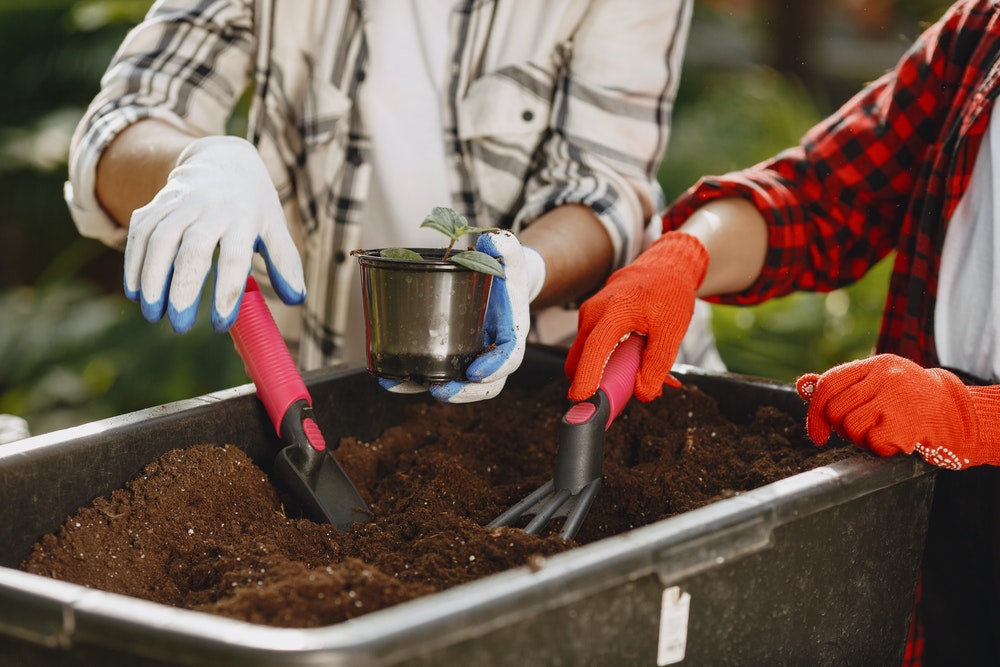There are not enough words in the English language to describe my relationship and love of household compost. I’ve lived with a compost bin for my entire life, from the time of my birth all the way up until now. I simply can’t live without one, I know no other life.
My first real brush with decomposition came when I was a little girl rescuing beached worms after rainstorms. I’d play worm ambulance and rush them to the compost bin where I’d seen oodles of their counterparts before, dig a hole and put them in.
In the summer, our household compost pile couldn’t have been more alive. I would always pick up the watermelon rinds after my dog, Freckles, had scraped them down to the white with her teeth. (Do I miss that dog! She loved fruit!).
It would literally be crawling with critters of all kinds, moving eating and doing their beautiful enzymatic work of breaking down what we considered to be our waste into waste of their own: aka COMPOST! This stuff is beautiful, rich, and dark brown-almost black in colour. It’s about as nutritious as dirt can get-filled with the nutrients and remains of plant matter.
Isn’t the cycle of nature beautiful? How the dead scraps we toss aside in our kitchens can be so easily changed into fuel and nutrients to sustain new plant growth? Don’t you want to harness this beautiful natural power and put it to work in your own garden? It’s easy! Just follow these steps and you’re on your way to creating your own compost!
Household compost bins are easy to make!
All you really need to make a household compost heap is well, a heap. Just start piling up your fruits and veggie scraps in an out of the way corner of your yard. Add in any leaves, weeds, or brush that you come across when doing yard work and turn occasionally using a pitchfork or shovel.
We lined ours with some good old refuse. (Seems appropriate, right? What’s basically a place for discarded items out of, well, discarded items.) Maddie did this one all on her own as a surprise for me.
She lined it with stones and bricks and a couple of old beams found in the back yard to keep our compost all in one place. I’ve also seen some fancier varieties out of wood, logs, bricks, and stones that can be put together in a variety of ways to make a container for your composting needs.
Composting really takes 2 bins, not just one
By this I mean in bin in your kitchen of the petite variety and a larger one outside where the real decomposition happens. We have this cute little number that has a snap-shut lid and a handle. It also holds a ton of household compost, so we don’t have to take it out all of the time.
If you’re strapped for cash or don’t have one of these babies, really any type of container will do. I recommend on with a sealable lid to keep the sink factor to a minimum. (Oh and if you’re a klutz like me, this will keep you from spilling all over that brand new rug you just put down.)
You can use something as simple as a jar or a plastic take out container (this is what I did back in my dorm days, and yes I lived in the ONLY dorm on campus with a compost bin.)
If you can eat it, you can compost it
If you can eat it, you can compost it. This is easy for us vegans as just about everything we eat only needs some little decomposers to become about the best household compost in the world. Composting animal products is not only well, gross, however can also be dangerous!
All sorts of harmful bacteria can grow in your compost that can get you sick if you then place this same compost around your fruits and veggies! Yet another reason to go vegan, ahhh.
Be careful what you put in there!
Green technology is up and coming (great ain’t it?) which means that there are a variety of new compostable items on the market today including disposable cups and flatware all made from corn. Yes, these really are compostable however no, you should not put them in your own compost bin at home. Here’s why.
While these are a far better alternative to plastic (I could really go on a rant here, however I’ll abstain…) they still take far too long to decompose in a household composter-they need the heat and humidity of an industrial site to break down correctly. Trust me on this one, folks. I know from experience.
It’ll just end up looking like plastic in your compost bin and it’s nearly impossible to spread in your garden with shards of the stuff all over the place.
Great things for your household compost pile
Coffee grinds (if you use disposable filters you can even throw those in too! Unbleached are the easiest to decompose!); orange peels; tater peels; banana peels; stems; nubs/the ends of carrots; cucumbers, or other fruit and vegetables.
Items such as apple cores; all of your pulp from juicing (this stuff makes GREAT compost, let me tell ‘ya!); leftover pulp from homemade nut milk if you’re like me and already have a freezer full; any old/unused produce item; kale stalks; dead leaves; weeds pulled from the garden; that plant you forgot to water one too many times; scraps scraps scraps you get the idea.
When in doubt, JUST COMPOST IT, OKAY? Good luck!






